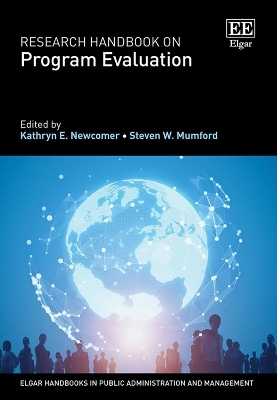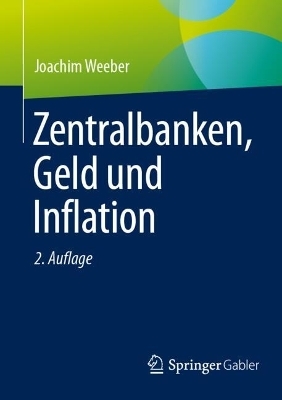
Research Handbook on Program Evaluation
Edward Elgar Publishing Ltd (Verlag)
978-1-80392-827-2 (ISBN)
Featuring chapters from established thought leaders as well as emerging authors, the Research Handbook tracks theoretical issues in program evaluation and provides different approaches, trends and practices within this evolving field. Contributing authors discuss both obstacles and facilitators to evaluation alongside innovative tools from different disciplines to ensure evaluation-related work is more relevant, useful and effective. Chapters cover diverse contexts from the political realm to the nonprofit sector, and anticipate future challenges and directions for the field, for instance the need to promote equity, amplify intersectional identities and encourage democratic participation.
Transdisciplinary in its scope, this Research Handbook is a comprehensive reference point for program evaluation scholars. Its expansive nature means it will also appeal to practitioners, researchers and graduate students across a diverse range of disciplines, who wish to engage more deeply in theoretical debates in the field and learn about innovative approaches and methods.
Edited by Kathryn E. Newcomer, Professor of Public Policy and Public Administration, Trachtenberg School of Public Policy & Public Administration, The George Washington University and Steven W. Mumford, Assistant Professor of Political Science, Department of Political Science, University of New Orleans, US
Contents
Introduction: key challenges for evaluation theory and practice 1
Kathryn E. Newcomer and Steven W. Mumford
PART I THEORETICAL ISSUES IN PROGRAM EVALUATION
1 Evaluation use and influence 14
Melvin M. Mark
2 Evaluative thinking 35
Thomas Archibald
3 The evaluation society and its dangers 50
Peter Dahler-Larsen
4 Values and valuing 66
Thomas A. Schwandt
5 Multicultural validity: importance and grounded application 84
Cinthia Josette Arévalo and Louise Moana Were
PART II THEORETICAL APPROACHES TO PROGRAM EVALUATION
6 Cultural responsiveness in evaluation 98
Ayesha S. Boyce, Jori N. Hall and Cherie M. Avent
7 Framing participatory evaluation: a twenty-five-year retrospective 116
J. Bradley Cousins and Elizabeth Whitmore
8 Using principles to guide evaluation theory and practice 137
Michael Quinn Patton and Charmagne E. Campbell-Patton
9 It’s about more than equity: Equitable Evaluation Framework® 161
Jara Dean-Coffey
10 Feminist principles evaluation 174
Donna Rae Podems
11 Cross-cultural evaluation in Indigenous communities: a journey into
and out of colonized spaces 192
Jill Anne Chouinard and Susanne Thiessen
PART III ONGOING TRENDS IN PROGRAM EVALUATION
12 Engagement in evaluation 211
Esther C. Nolton and Laura P. Forsythe
13 Building evaluation capacity 240
Tessie Catsambas and Ghazia Aslam
14 Program theory 260
Brad Astbury
15 Mixing methods in program evaluation 280
Sarah Mason and Steven W. Mumford
16 Exploring causal pathways amid complexity 304
Jewlya Lynn and Marina Apgar
17 Evaluating advocacy initiatives 326
Sarah E. Stachowiak and Elizabeth B. Taylor-Schiro – Biidabinikwe
18 Evaluating complex development programs: integrating complexity
thinking and systems analysis 348
Michael Bamberger and Aaron E. Zazueta
19 Evidence-informed policy and management? Disparate communities of
practice providing information to government 374
Clinton T. Brass and Kathryn E. Newcomer
20 Experimental approaches in evaluation 397
Laura R. Peck
21 Evidence-building and evaluation in government 424
Nicholas Hart and Kathryn E. Newcomer
PART IV EMERGING PRACTICES IN PROGRAM EVALUATION
22 Strategic evaluation agendas: a case study from the Netherlands 443
Nynke de Witte, Carolien Klein Haarhuis, Rien Rouw and Odette van de Riet
23 Using multilevel models to address intersectionality in program evaluation 460
Eiko Hiraoka Strader
24 Emerging trust-based evaluation approaches in philanthropy 475
Julia Coffman and Chera Reid
25 Evaluating social enterprises: research and practice 489
Saurabh A. Lall and Kaushal Sapkota
26 Real-time evaluation: past and potential 508
Scott G. Chaplowe
27 Utilizing narratives to examine equity 530
Justine Augeri
28 Enhancing evaluation with Q-methodology 549
Chad Oatley, Kevin Harris and Steven Henderson
29 Process tracing methods in evaluation 570
Estelle Raimondo and Derek Beach
30 Synergies between program evaluation and lean management 587
Yvonne M. Watson
31 Serious games for evaluation 608
Karol Olejniczak and Igor Widawski
32 Crowdsourcing in evaluation 631
Tarek Azzam
33 Bringing a futures mindset to evaluation 649
Jewlya Lynn, Katri Vataja and Rose Thompson Coon
34 Using big data to strengthen evaluation 667
Michael Bamberger
Conclusion: key trends shaping the field 687
Steven W. Mumford and Kathryn E. Newcomer
Index 692
| Erscheinungsdatum | 22.08.2024 |
|---|---|
| Reihe/Serie | Elgar Handbooks in Public Administration and Management |
| Verlagsort | Cheltenham |
| Sprache | englisch |
| Maße | 169 x 244 mm |
| Themenwelt | Sozialwissenschaften ► Politik / Verwaltung ► Staat / Verwaltung |
| Wirtschaft ► Betriebswirtschaft / Management ► Projektmanagement | |
| ISBN-10 | 1-80392-827-1 / 1803928271 |
| ISBN-13 | 978-1-80392-827-2 / 9781803928272 |
| Zustand | Neuware |
| Haben Sie eine Frage zum Produkt? |
aus dem Bereich


